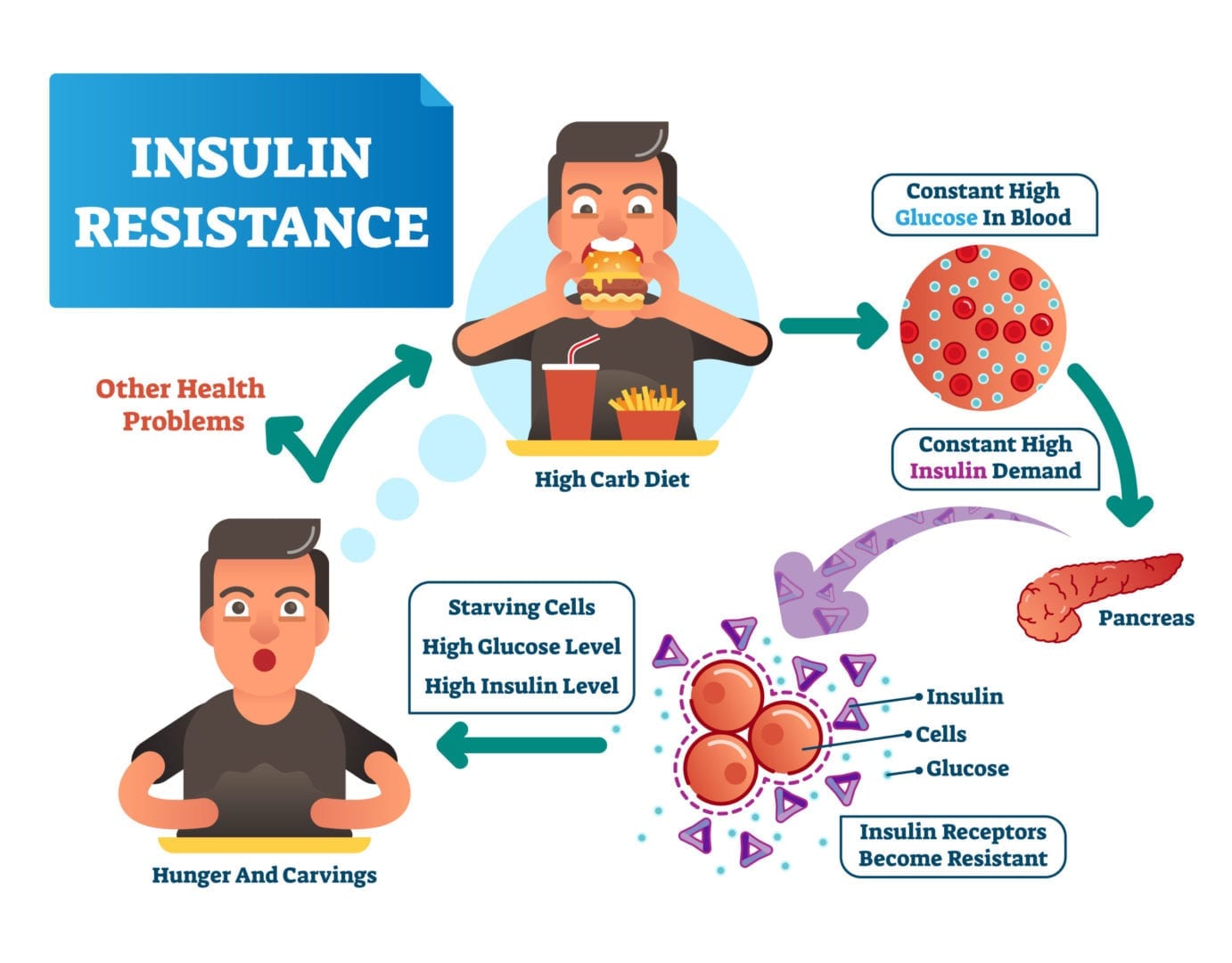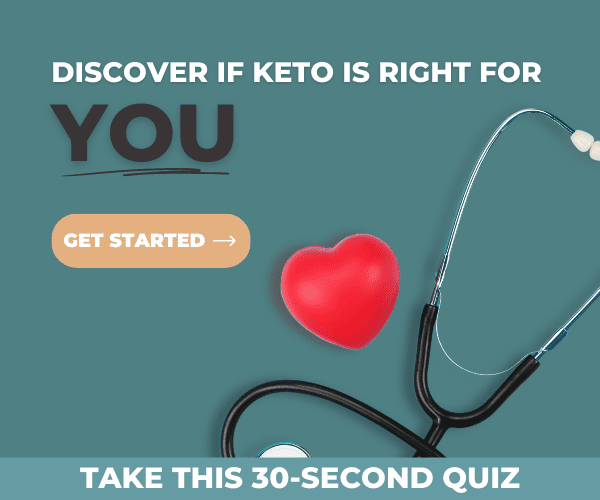How Does Eating Junk Food Impact Your Health?

Is junk food really that bad for your health? What are the possible long-term health implications of eating a junk-food heavy diet? You see the perfectly polished advertisements on television, billboards, and elsewhere enticing you to eat these foods. Junk food is available in almost every grocery or convenience store and it does have its perks. For example, junk food is often quick, convenient, and tasty! Junk food manufacturers work hard to make their food products as irresistible as possible with addictive ingredients and flavorings. These ingredients and additives might delight your taste buds, but they can damage your health, particularly if you consume too much junk food too often.
Just because you’re on keto doesn’t mean you’re consuming a nutrient-dense, healthy diet. You can still eat junk food on keto.
What is Junk Food?
Junk food is the term for food that’s high in calories, low in nutrients, and a poor choice for your health. Junk food might also be called fast food.
What’s considered junk food might vary depending on who you ask. Generally speaking, junk foods have a low satiation value, so you don’t feel full when you eat them. Numerous popular snack foods and commercially prepared products fall into the junk food category.
If a food product contains lots of sugar or high-fructose corn syrup, white flour, or milled corn, it’s considered junk food. This includes many breakfast cereals and other refined carbohydrates that spike your blood sugar high before it comes crashing down again on a blood sugar rollercoaster.
How can Junk Food Cause Health Problems?
Junk food has been associated with a surprising range of health problems, including inflammation, visceral fat, insulin resistance, arterial plaque build-up, and heart disease, and other chronic diseases [1] [2] [3].
Most junk foods are high in carbohydrates and sugar, making them off-limits on keto anyway! However, there are still plenty of keto-friendly junk foods that certainly won’t help you achieve your health goals. Some ‘health’ foods are junk foods in disguise, like sugary granola bars that can easily kick you out of ketosis.

1) Overeating
Since junk foods aren’t satiating, you might overeat them. Junk foods also tend to replace healthy, nutritious foods. Instead of a green tea or smoothie, many people guzzle down a sugary soda, and instead of snacking on nuts or seeds, many people chow down on processed candy bars, chips, and snack cakes.
Studies show junk food can be addictive and promote overeating due to certain factors, such as:
- Low in fiber
- Good taste (high palatability)
- High in sugar or liquid sugar
- Low in nutrients [4]
2) Liquid Calories and Added Sugar
Some experts argue that when you drink liquid calories, your brain doesn’t seem to register them as food, which can cause you to drastically increase your total calorie intake and drive obesity and weight gain [5] [6] [7].
Sugar can also lead to insulin resistance and it’s associated with non-alcoholic fatty liver disease when consumed in large amounts. Sugar has been linked to heart disease and types 2 diabetes [8] [9] [10] 
3) Unhealthy Processed Ingredients
Junk foods, such as most commercially available pizzas, bread, and fries, are packed with unhealthy ingredients like poor quality processed meats and highly refined dough or wheat. Refined wheat is low in fiber and essential nutrients and might cause rapid blood sugar spikes [11].
Homemade pizzas, breads, and fries are usually healthier, such as these keto-friendly recipes:
4) High in Calories and Carbs
Thanks to the unfortunate war on fat that science continues to debunk, many food manufacturers began removing the fat from foods. This left food products tasting terrible — a major problem for food manufacturers, so they added lots of sugar to compensate [12].
Added sugar can be incredibly harmful when consumed in excess [13] [14]. On the other hand, the curtain has been lifted unveiling the weak evidence behind the war on fat. Dietary fat is consistently being exonerated with compelling research. For more on this check out the riveting documentary Fat Fiction.
Especially when you’re keto, you want to avoid food products labeled fat-free or low-fat, since it’s probably sugar-laden and lacking the healthy fats you need on keto. You’d be surprised by some of the ‘healthier’ food choices that can fall into the junk food category just based on the excessive sugar content! Think salad dressings and sports drinks. Salad dressings might have unhealthy trans fats, vegetable oils, and artificial chemicals. Sports drinks might have artificial flavors and dyes. It would be pretty disappointing if your salad dressing kicked you out of ketosis.
Do You Avoid or Limit Junk Food?
What are your thoughts on consuming junk food and the potential resulting health problems?
References
Nivoit, P., Morens, C., Van Assche, F. A., Jansen, E., Poston, L., Remacle, C., & Reusens, B. (2009). Established diet-induced obesity in female rats leads to offspring hyperphagia, adiposity, and insulin resistance. Diabetologia, 52, 1133-1142.
Baer, D. J., Judd, J. T., Clevidence, B. A., & Tracy, R. P. (2004). Dietary fatty acids affect plasma markers of inflammation in healthy men fed controlled diets: A randomized crossover study. American Journal of Clinical Nutrition, 79(6), 969-973.
Esposito, K., & Giugliano, D. (2005). Diet and inflammation: A link to metabolic and cardiovascular diseases.European Heart Journal, 27(1), 15-20.
Bhaskar, R. (2012). Junk food: Impact on health.Journal of Drug Delivery & Therapeutics, 2(3),
Vartanian, L. R., Schwartz, M. B., & Brownell, K. D. (2007). Effects of soft drink consumption on nutrition and health: A systematic review and meta-analysis. American Journal of Public Health, 97(4), 667-675.
Pan, A., Hu, F. B. (2011). Effects of carbohydrates on satiety: Differences between liquid and solid food.Current Opinion in Clinical Nutrition and Metabolism Care, 14(4), 385-390.
DiMeglio, D. P., & Mattes, R. D. (2000). Liquid versus solid carbohydrate: Effects on food intake and body weight.International Journal of Obesity Related Metabolic Disorders, 24(6), 794-800.
Vos, M. B., & Lavine, J. E. (2013). Dietary fructose in nonalcoholic fatty liver disease. Hepatology, 57(6), 2525-2531.
Schulze, M. B., Manson, J. E., Ludwig, D. S., Colditz, G. A., Stampfer, M. J., Willett, W. C., & Hu, F. B. (2004). Sugar-sweetened beverages, weight gain, and incidence of type 2 diabetes in young and middle-aged women. JAMA, 292(8), 927-934.
Yang, Q., Zhang, Z., Gregg, E. W., Flanders, W. D., Merritt, R., & Hu, F. B. (2014). Added sugar intake and cardiovascular diseases and mortality among US adults. JAMA, 174(4), 516-524.
Harvard Medical School. Glycemic Index for 60+ Foods,
Chowdhury, R., Warnakula, S., Kunutsor, S., Crowe, F., Ward, H. A., Johnson, L., Franco, O. H., Butterworth, A. S., Forouhi, N. G., Thompson, S. G., Khaw, K-T., Mozaffarian, D., Danesh, J., & Di Angelantonio, E. (2014). Association of dietary, circulating, and supplement fatty acids with coronary risk. Annals of Internal Medicine,
iri-Tarino, P. W., Sun, Q., Hu, F. B., & Krauss, R. M. (2010). Meta-analysis of prospective cohort studies evaluating the association of saturated fat with cardiovascular disease. American Journal of Clinical Nutrition, 91(3), 535-546.
Stanhope, K. L., Schwarz, J-M., & Havel, P. J. (2013). Adverse metabolic effects of dietary fructose: Results from the recent epidemiological, clinical, and mechanistic studies. Current Opinion in Lipidology, 24(3), 198-206.









